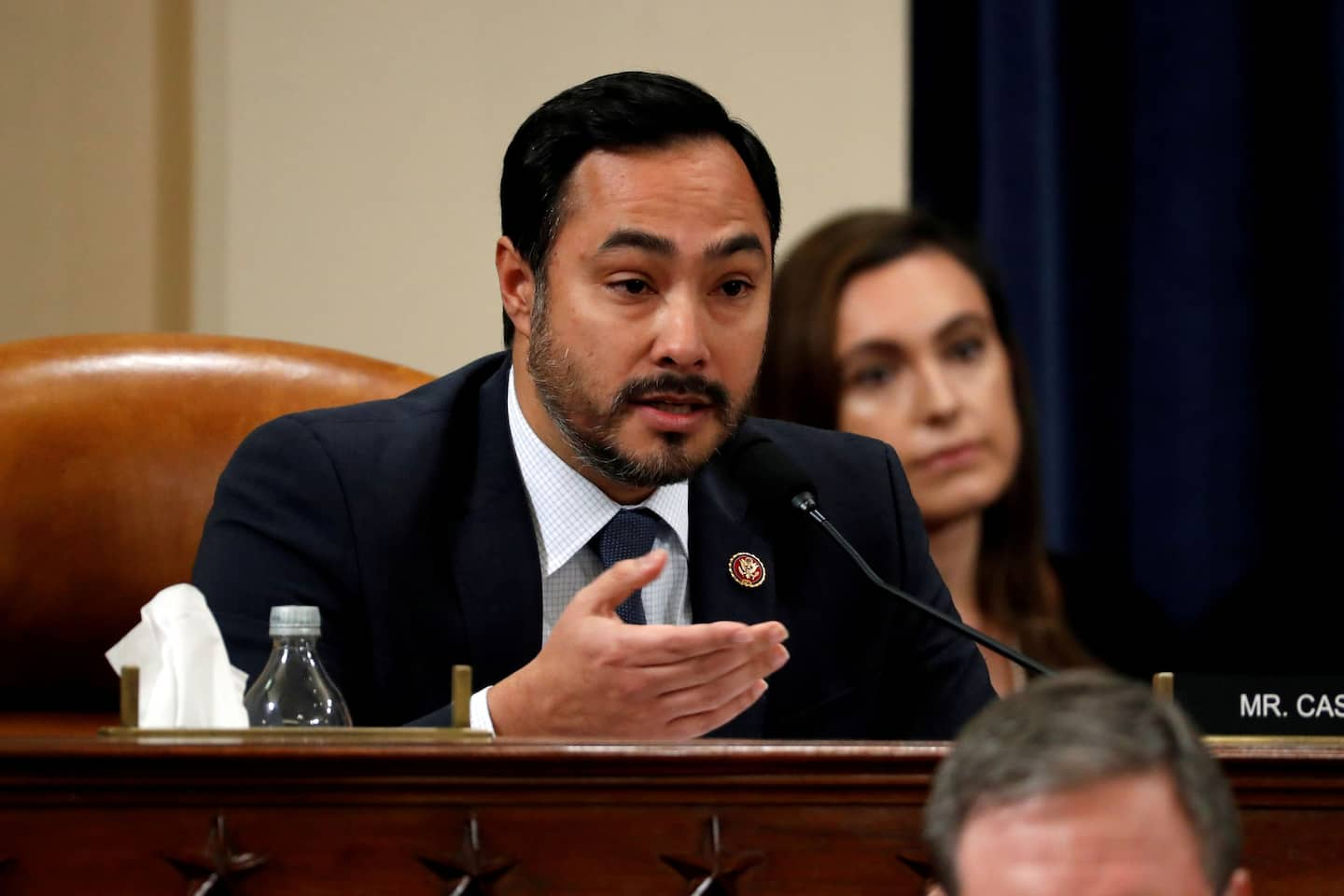Joaquin Castro shows the path forward for Democrats

Then four-term junior committee member Joaquin Castro (D-Tex.) surprised analysts by joining the race. One might have expected that Castro, a member of the moderate New Democrat Coalition, would also be anathema to the party left, given some moderate stances such as voting to condemn the Boycott, Divestment, and Sanctions movement against Israel. But in another surprise, the second-generation Mexican American has received support from a range of progressive foreign policy and environmental groups. In addition to his progressive positions, including opposing President Trump’s brazen U.S. interventionism in Latin America and leading the fight against cruel migration policies, Castro’s model of engaging groups on all sides, from progressives to youth groups such as the Sunrise Movement, shows the path forward for the Democratic Party.
Castro pledges to bring diverse voices to the witness table in the committee — not just in terms of race, gender and sexual orientation, but also a diversity of viewpoints, something sorely missing under the conservative tenure of outgoing chair Rep. Eliot L. Engel (D-N.Y.). Castro has excited progressive Jewish groups such as J Street — and unnerved conservative pro-Israel groups such as the American Israel Public Affairs Committee — with his novel suggestion that the committee hear from Palestinian voices for the first time. After all, Castro argues, if the United States hopes to be “an arbiter of peace, it has to be willing to hear from the different sides.”
His leading opponent represents the past of the Democratic Party that set the stage for Trump. Meeks, who lives a luxurious lifestyle, has made Citizens for Responsibility and Ethics in Washington’s list of the Most Corrupt Members of Congress three times. He represents the big money, corporate-linked policies that alienated workers. He is among the staunchest advocates in Congress for corporate trade policies that decimated American manufacturing, including founding the Friends of the Trans-Pacific Partnership Caucus and being a lead advocate for the Colombia trade deal. (A recent expose by “In These Times” magazine detailed Meeks’s cooperation with far-right paramilitary-linked politicians in that country.) Lori Wallach of Public Citizen’s Global Trade Watch describes Meeks as “the worst on trade issues and has voted for corporate power and against the Democratic majority, against labor, against consumer and environmental groups’ positions, etc. on every trade vote since he has been in Congress.” On Tuesday, leading labor groups asked House Speaker Nancy Pelosi (D-Calif.) to oppose Meeks’s bid, arguing that his “pro-corporate trade” views should preclude him from the chairmanship.
Castro in leadership will provide tangible benefits for Democrats — both in politics and policy. As a son of Chicano activists and the most prominent border-region Democrat — a region where Democrats underperformed with Latinos against Trump — Castro’s presence in leadership could make a real impact. With just two committee chairs (on committees that are widely seen as less influential), the United States’s 60 million Latinos are the most underrepresented major constituency in Democratic leadership. And this concern is broader than one party: As the country works to recover from Trump’s demonization and attacks on immigrant families, it is more important than ever to have Latinos in leadership.
Generational diversity is also a serious concern for Democrats. Democratic committee chairs have an average age of 68 — up five years from the Republican Congress. Castro, at 46, would be by far the youngest committee chair. This helps his appeal with youthful, more progressive groups and the anti-racist and immigrant rights movements. On top of that, Castro has become the first candidate to commit to a limit of four terms, to ensure there is space for new leadership.
Castro may be seen as the underdog, but the generational, progressive foreign policy movement that formed around his bid now has more momentum, regardless of the outcome of this vote. Ending endless wars; crafting trade policies that enforce labor and human rights, and work for working people; and redirecting funds from bloated defense budgets to human needs are all policies desperately needed if we are to reconstruct a foreign policy for post-pandemic times. Joaquin Castro and the young, diverse base of the Democratic Party are positioned to lead that challenge. But is the party establishment ready to change?
Read more:






